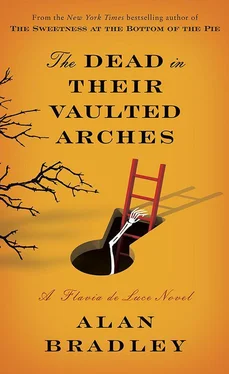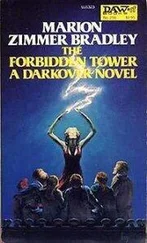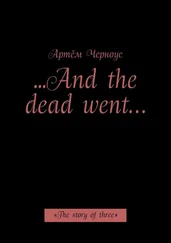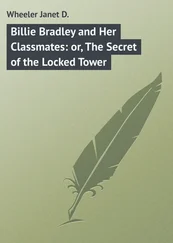The introduction of ATP into the bloodstream was thought to have much the same reanimating effect upon the spines of the dead as cocarboxylase hydrochloride did upon the heart and pancreas.
This, then, was how I would restore Harriet to the land of the living: a monumental injection of ATP combined with a similar dosage of cocarboxylase hydrochloride.
With these two chemicals already at work in her thawing body, I would then apply Professor Kano’s knuckle blow to her second lumbar vertebrum.
It was a brilliant idea, and because it was scientific, it simply could not fail.
THIRTEEN
THE PROBLEM WAS THIS: Where was I to find the ingredients?
The vitamin B 1could, of course, be extracted from yeast, but the process was time-consuming and smelly and could not, I decided, be conducted under the very noses of family, guests, and visitors without raising certain embarrassing questions.
The ATP, though, was going to be a horse of a different hue. Although discovered more than twenty years ago, it had only been successfully synthesized recently by one Alexander Todd at Cambridge, and was probably as scarce as hen’s dentures.
I could not even begin to guess how to get my hands on the stuff. It seemed reasonable to assume that if anyone in the vicinity of Bishop’s Lacey possessed a sample, it would be a doctor, a veterinarian, or a chemist’s shop.
I suppose I could have telephoned Dr. Darby, or Cruickshanks, the village chemists, but the telephone at Buckshaw, having been the instrument by which Father had first learned of Harriet’s disappearance more than ten years ago, was strictly off limits.
Now that the news of her death had reached his ear through that same somber black earpiece, it held even greater terrors for him, and accordingly for us all.
There was nothing for it but to cycle into Bishop’s Lacey and make my inquiries in person. Actually, I decided, it was preferable that way: With the telephone, people can always ring off with the feeblest of excuses. In person, it could be much more difficult to shake off Flavia de Luce.
“Gladys,” I whispered at the door of the greenhouse. “It’s me, Flavia. Are you awake?”
Gladys was my BSA Keep-Fit bicycle. She had belonged originally to Harriet, who had named her l’Hirondelle , “the swallow”—I suppose because of the way she swooped and darted while racing down deliciously steep hills—but I had rechristened her Gladys because of her happy nature.
Gladys was awake. Of course she was. Like the Pinkerton Detective Agency, her motto was “We Never Sleep.”
“Quick conference,” I told her. “We shall have to sneak out the back way. Too many people in front.”
There was nothing that excited Gladys more than sneaking out the back way. We had performed that maneuver together on many occasions, and I think she took a certain naughty delight in having the opportunity to do it again.
She gave a tiny squeak of pleasure and I hadn’t the heart to reprimand her.
I wheeled Gladys south and then west, taking great care to keep clear of the views from Father’s study window and the drawing room. For a while, it was touch and go, darting from tree to tree, then peering back round to be certain that no one was following us.
After a time, it became less risky, and I pushed Gladys, my hand gently on her leather saddle, bumpety-bump across the rough fields to a country lane which led north to the main road.
Now, with my feet pressing happily down on her pedals, we sped along with a tickety-tick whirring noise that startled small birds in the hedgerows and caused an old badger to waddle comically for cover.
At the junction, we skidded to a stop. It was time for a decision. To the west lay Hinley and the hospital. Was there a chance that the dispensary there would have a supply of the needed ATP? Would Feely’s friend’s sister, Flossie Foster, be on duty? Would I be able to talk her into organizing a raid on the dispensary?
It seemed unlikely. The odds were probably staggering.
But—to the east lay Bishop’s Lacey, in which were located both the surgery of Dr. Darby and Cruickshanks the Chemists.
With scarcely a pause, I turned Gladys’s head towards the east, and off we sped to whatever might await us.
The bell over the door tinkled noisily in its bracket as I entered the chemists’ shop.
The front of the place was bright enough, with sunlight streaming in through the large red and blue apothecary jars in the window, but beyond that, deeper into the shop, the light died a horrible death. The back of the room was a place of shadows, with a small dark counter at whose wicket Miss Clay was whispering, as if it were a confessional, into the ear of Lancelot Cruickshank, the chemist.
I pretended I couldn’t hear them, even though the razor-keen sense of hearing I had inherited from Harriet had already told me that their conversation had to do with rhubarb pills and sulfur.
I drifted about the shop, staring as if hypnotized by the numbing collection of colorful tins, boxes, and bottles that lined the shelves: powders, pills, potions, lotions, elixirs, salves, salts, syrups, lozenges, ointments, and electuaries—a cure for every occasion.
“I shall be with you directly,” Mr. Cruickshank called out, and then resumed his bluebottle buzzing with the unfortunate Miss Clay.
As they spoke, first one and then the other, I became aware that there was a third voice—a quieter voice, like a silken ribbon—weaving its way in and out of the conversation from time to time.
Although I could not see the speaker, I knew that it could be no one but Annabella Cruickshank, Lancelot Cruickshank’s sister: a qualified chemist in her own right, but seldom seen about the village. A silent partner, so to speak. Silent and practically invisible.
She was, Daffy had once told me in a lighter moment, “the powder behind the throne,” which seemed to me might possibly be a capital joke, and even though I didn’t get the point of it, I had laughed too loudly and too long.
Out of no more than idle curiosity, really, I drifted somewhat closer to the back of the shop, hoping to overhear some snippet of gossip that I could parlay at home into a grown-up conversation with my sisters.
The closer I came to the dispensing counter, the more subdued the buzz of conversation became until—quite abruptly—it ended with a “Shhh” and the whispered word “Harriet.”
At first, I was rather touched that they should be talking about my mother, but then I realized that they were talking about me .
“Excuse me, Mr. Cruickshank,” I said, “I’m in rather a hurry. I wonder if you could please let me have some thiamine?”
There was a silence, and then his voice said from the shadows, “For what purpose is it required?”
“I’m afraid our poultry—” I was speaking of Esmeralda here, but I thought it best to imply that large quantities of the stuff might be required. “I’m afraid our poultry might be in need of a vitamin B supplement in their feed.”
“Oh, yes?” Mr. Cruickshank said. I could already tell that he was not going to be helpful.
“Yes,” I told him, flapping my arms like injured wings. “Classic symptoms: convulsions, tremors, staring at the sky, and so forth. Classic.”
Dogger had described to me, during one of our discussions about the Buff Orpington breed, of which Esmeralda was a member in good standing, the so-called “Stargazer syndrome” in which a thiamine deficiency could cause the birds’ neck muscles to contract and go awry, leaving the poor chickens able only to look upwards, and frequently causing them to fall over onto their backs.
“I thought I might pick up a bottle of B 1tablets,” I rattled on. “Pulverize them—add them to the feed. Sparingly, of course.”
Читать дальше












